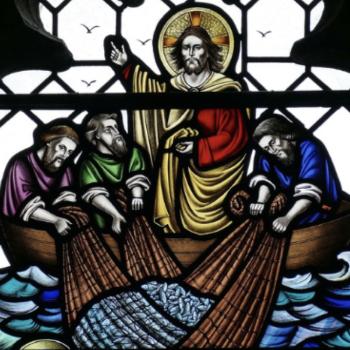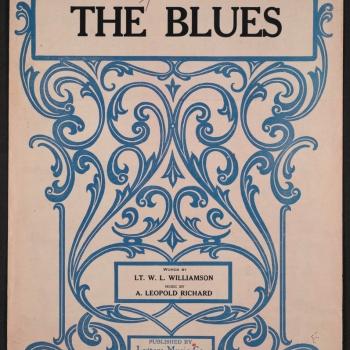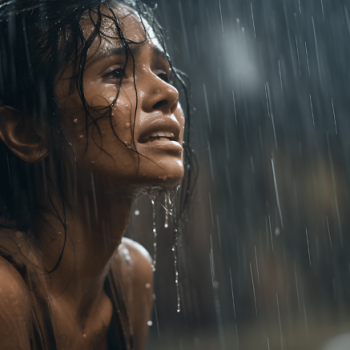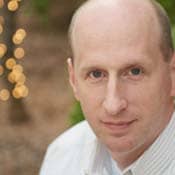By David French
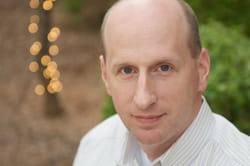 Last week I passed two milestones -- one minor, one major. The minor milestone was the two-year anniversary of the day I reunited with my family after serving a year in Iraq. The major milestone was the death of a dear friend on that same day -- a death back in Iraq, at the hands of an al Qaeda suicide bomber.
Last week I passed two milestones -- one minor, one major. The minor milestone was the two-year anniversary of the day I reunited with my family after serving a year in Iraq. The major milestone was the death of a dear friend on that same day -- a death back in Iraq, at the hands of an al Qaeda suicide bomber.
Mike was still in Diyala Province when I left. I’d been with him a year, but his tour was longer than mine, three months longer. The first time I rolled “outside the wire” on a mission, it was in Mike’s vehicle. The night in Iraq when I felt the most danger -- when I was out in the wee hours with illumination rounds lighting our long and slow path through enemy-held ground -- it was Mike’s steady voice on the radio that helped guide us home. Mike was a rock -- a funny, quirky, big-hearted rock -- but a rock nonetheless. If Mike was on the scene, everything was okay . . . until it wasn’t.
I’ll never forget his funeral. I sat in my uniform, choking back tears, as his parish priest read a scripture his mother selected:
At that time Michael, the great prince who protects your people, will arise. There will be a time of distress such as has not happened from the beginning of nations until then . . . Those who are wise will shine like the brightness of heavens, and those who lead many to righteousness, like the stars forever and ever.
“The great prince who protects your people.” Those words have echoed in my mind, not just for Mike but for the other “great princes” who served and died and those who served and lived, often wounded in body and soul.
In my year in Iraq, I saw a country move back from the edge of darkness. There are uncounted thousands of people who are not only alive today, but have a fighting chance at freedom, security, and prosperity because of Mike and the men I served with. We fought the darkness with rifles, artillery, and air strikes, but we also fought it with mercy, justice, and compassion. As one of my friends said, upon his return home, “I think I’ve just done the most important thing I’ll ever do.”
In my civilian job, I’m a “professional Christian.” In other words, I make my living in Christian ministry, working as a religious liberty attorney running the Center for Academic Freedom for a Christian legal alliance. I speak to young people from coast to coast, and I marinate in the evangelical culture -- from its resurgent Calvinist wing to its “emergent” dissenters. Everywhere there is a debate about the culture, about mission, about purpose. Everywhere there is a call to serve.
There are calls to serve the poor, the addicted, the divorced, and the abused. There are calls to serve the planet and to serve the community, but is there a prominent Christian voice calling our young people to serve their country? To lay down their life fighting the darkest of evils, defending the most vulnerable of people?
“Greater love hath no man . . .” Almost any Christian can finish that sentence. In the Army, young men and women live it every day. Yet most of us roll forward, thinking of “missional” lives while not even considering military options. We love to serve but don’t even think of the possibility of ultimate sacrifice.
I wasn’t the best soldier in Iraq, but I owe everything that I was to God -- He gave me the courage to do my duty, the wisdom to advise my commander, and the strength to endure day by hostile, grueling day. And now he gives me assurance as I mark last week’s milestone: “Blessed are those who mourn, for they shall be comforted.”
Onward Christian soldiers? Yes. But not on a crusade -- on a mission, one that requires the courage you fear you lack, places you in dangers you may not survive, and whose outcome is far from certain. We can’t assume that there will always be a Mike, or a Torre, or a Phillip, or a Gregory -- somebody else willing to serve and give all they have to give. That “somebody else” may be the person you see in the mirror. Christians know there does exist “a time for war,” and when that time comes -- as it has -- shall we not do our part?
David French is a lawyer, writer, soldier, and veteran of the Iraq war. He serves as the director for the Center for Academic Freedom.
9/30/2010 4:00:00 AM

